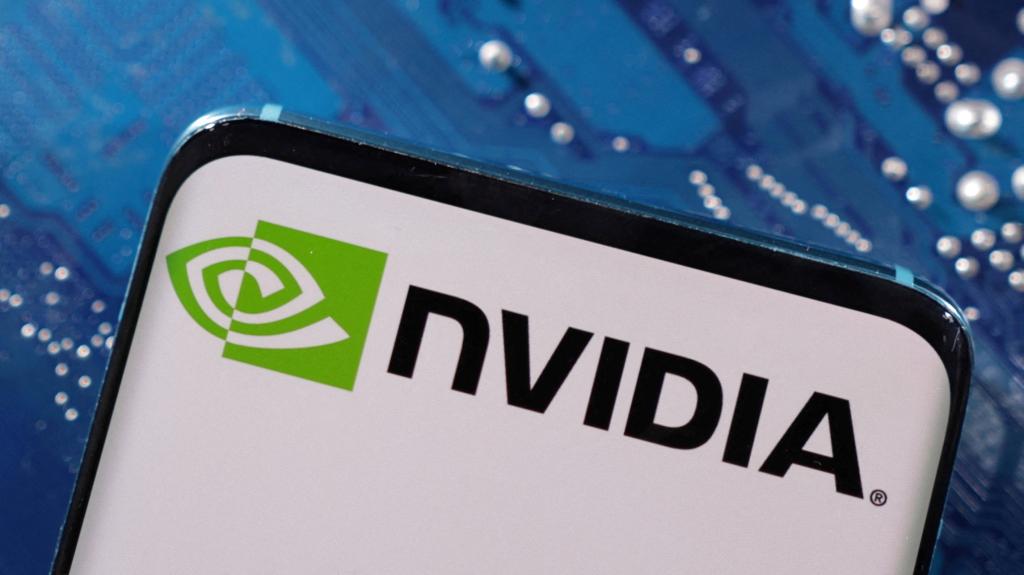Nvidia's AI Chip Surge Amidst Rising Competition
Explore how Nvidia's specialized Blackwell chips drive unprecedented revenue growth, even as competition heightens from emerging AI players like DeepSeek.

Key Points
- Nvidia
reports a record revenue of $39.3 billion, driven by soaring demand for its specialized Blackwell AI chips amid rising competition.
- The shift towards reasoning AI models increases the need for robust computational power, which Nvidia is expertly positioned to provide.
- Despite challenges from emerging competitors like DeepSeek, Nvidia maintains its market leadership with a strong global presence and innovative technology.
In a world increasingly driven by artificial intelligence (AI), Nvidia has become a household name synonymous with innovation and excellence. The tech giant recently reported a staggering revenue of $39.3 billion for the fourth quarter, marking a remarkable 78% year-on-year increase. This growth comes despite intense competition, particularly from emerging players like China's DeepSeek, which have attempted to carve out a niche in the AI space. Let's explore how Nvidia has managed to not only withstand these challenges but also flourish in the evolving landscape of AI technology.

Diverse Demand for Specialty Chips
A significant factor driving Nvidia's success lies in its specialized Blackwell chips. These potent processors are tailored for AI systems, providing the necessary compute power to handle extensive data sets and complex computations. The CEO,
, noted, "Demand for Blackwell is amazing as reasoning AI adds another scaling law". This means that as AI systems evolve to handle more complex reasoning tasks, they require even more computational power—a gap that Nvidia is well-positioned to fill.
Moreover, the increasing trend towards reasoning AI—where models, such as advanced chatbots, decompose problems into smaller, manageable parts—has further amplified the need for more robust computing capabilities. With tech giants like Meta and
investing heavily in these models, Nvidia's chips are the backbone of this revolution.

Resilience Against Market Pressures
Despite the emergence of new competitors like DeepSeek, which claims to offer competitive AI models at a lower cost, Nvidia's market position remains unshaken. The recent volatility in Nvidia's stock, resulting from fears of losing market dominance, was met with a broad reassessment as analysts recognized the company's fundamental advantages. Huang commented, “We know fundamentally software has changed”, emphasizing the growing importance of chips designed for machine learning over traditional coding methods.
Moreover, Nvidia's resilience is reflected in its stock performance, which has skyrocketed by over 400% in the past two years, solidifying its status as a key player in the AI sector with a market capitalization exceeding $3 trillion.

Global Expansion and Future Prospects
Nvidia's growth isn't limited to the U.S.; the firm is expanding its reach globally. According to CFO Collette Kress, there is a burgeoning demand for AI data center products in regions like Europe, indicating a strong interest in AI technologies worldwide. The potential for AI remains largely untapped, and Nvidia’s chips are crucial for facilitating this future.
While operations in China face challenges due to U.S. trade controls, Nvidia’s executive leadership remains optimistic about the long-term outlook. As more industries begin to realize the benefits of AI, Nvidia is positioned to continue leading the charge with innovative products and solutions.

In summary, Nvidia’s remarkable financial performance amidst rising competition is a testament to its robust business strategy, innovative product offerings, and an unwavering commitment to the AI landscape. With the demand for AI-driven solutions only expected to increase, Nvidia is well-equipped to meet the challenges ahead and continue its ascent in the technology space.


